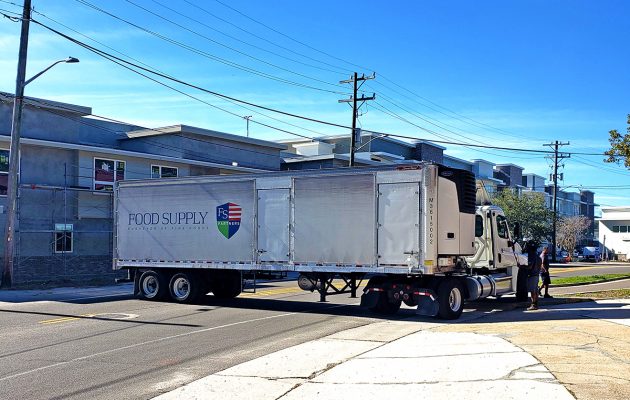City Council approve s new truck route system to reduce traffic in residential neighborhoods

Three years after the City of Jacksonville’s Context Sensitive Street Standards Committee drafted a bill to regulate where commercial trucks could be driven on local roads, City Council passed an ordinance Jan. 22, 2019 restricting routes in residential neighborhoods.
The new ordinance reduces the use of regulated trucks traveling on restricted roads except for delivery and pickup, with the intention of protecting residential neighborhoods from excessive truck traffic that would create greater hazards to pedestrians, bicyclists and children; increase congestion and noise pollution, and distress pavement conditions. A “regulated” truck is one which exceeds 26,001 pounds in gross vehicle weight and is designed for the specific purpose of transporting freight.
Originally the bill intended to limit truckers to 52 truck routes and 10 alternate routes. Most state roads would automatically be truck routes, unless specifically excluded, and the routes would show up on digital maps like Google Maps. Truckers could still make deliveries in neighborhoods, but they could be fined for using a residential street as a cut-through.
There was significant pushback in 2017 from the Florida Department of Trans-portation, North Florida Transportation Planning Organization and the trucking industry, which claimed the new rules would result in drivers taking longer routes and increase the number of accidents, the amount of road wear and tear, and price of goods delivered by trucks.
The industry’s hue and cry caused City Council to postpone its vote in 2017 and sent the ordinance back to the drawing board overseen by a group of city planners, trucking company executives and two City Councilmen, Aaron Bowman and Danny Becton.
The revised bill noted the purpose of a commercial truck route system “is to provide guidelines that balance the needs of interstate commerce and the trucking industry with the desire to minimize the impacts of trucks on sensitive land uses,” and does not “prohibit trucks from using all roads within a municipality, but it does require the use of certain roads that are more suitable to such commercial truck traffic to the greatest extent possible, and also minimizes truck intrusion into sensitive areas to the extent possible.”
A document called the 2030 Comprehensive Plan (Comp Plan) intends for truck routes to minimize traffic through residential areas. Under the new ordinance, after a six-month introductory period, truckers can be ticketed if they use restricted roads.
For historic neighborhoods, such as Riverside, Avondale and San Marco, where streets are narrow, often paved, and primarily residential, the new ordinance should reduce congestion, noise, potholes and other safety hazards through neighborhood streets. Under the new ordinance, for roadways to be compatible with regulated trucks, lane widths on truck routes may be 12 feet, however 11 feet is acceptable when truck volume is less than 10 percent.
The bill amends the Municipal Ordinance Code, Chapter 804 Jacksonville Traffic Code, by creating a new Part 15 Truck Route Regulations. Additionally, it tasks the Planning and Development Department with creating an education program in conjunction with the Jacksonville Sheriff’s Office to educate the public and regulated trucking industry about the location of preferred truck routes.
By Kate A. Hallock
Resident Community News






